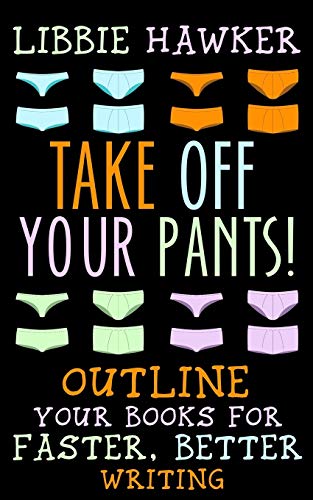Top products from r/CharacterDevelopment
We found 4 product mentions on r/CharacterDevelopment. We ranked the 4 resulting products by number of redditors who mentioned them. Here are the top 20.
1. The Confidence Game: Why We Fall for It . . . Every Time
Sentiment score: 1
Number of reviews: 1
Penguin Books
 Show Reddit reviews
Show Reddit reviews2. Take Off Your Pants!: Outline Your Books for Faster, Better Writing
Sentiment score: 1
Number of reviews: 1
 Show Reddit reviews
Show Reddit reviews

Sorry, this is a little late, but I hope it helps.
TL;DR: To build my characters, I use a personality self help book: [The New Personality Self-Portrait] (https://www.amazon.co.uk/dp/B00ALBR6X2/ref=dp-kindle-redirect?_encoding=UTF8&btkr=1).
What it does is give 14 different personality traits, and describes people as varying mixtures of those traits, with the 3 most prominent giving the character their drives.
You can take the (free) quiz from the book [here] (http://npsp25.com/) in the mind of your character to try and analyse him more and try to establish a practical guide to how he would react in different situations. You can also try and adjust your character based on these findings to give him more conflicting personality traits and otherwise. I'd recommend buying the book, but it's up to you.
----
As I said before, I use the NPSP book as a personality tool box. For instance, in my last novelette, my main character was Conscientious, Solitary, and Adventurous. This meant that when she was given the chance to commit an anarchist crime, she immediately said yes (Adventurous), but then spent days afterwards agonising whether it was the right choice (Conscientious). She didn't reach out to anyone to ask for help, because she doesn't really feel that need to connect with anyone (Solitary), and a few scenes after that are spent walking the city streets alone, thinking.
The other main character was Devoted, Sensitive, and Dramatic. So, when the reader first meets him, he's been part of an intimate group that has fallen apart, and he's desperate to find that same kind of community again, pushing himself into friendship groups, societies, and so on. This is because he bases his self-worth on how much he can give to other people (Devoted) and he hates being on his own, having to live outside of a comfortable, known structure (Sensitive). However, when he meets and falls in love with this girl but also is given the chance to move away with this group, his end decision is this giant, expressive act that gives the novelette a really nice finale (Dramatic).
So, you can see how it's a useful personality tool box. Lots of the book is actually made up of fictional accounts of people in different situations to highlight how their personality traits pop up in different situations (for instance, in Conscientious: "Conscientious is the man who retires, finally, at age seventy-five, and is delighted to spend all day at his workbench"). It can be a little simplistic sometimes, but it's very good at giving a basic foundation for your character to start with.
What's also interesting to do is to generate different personalities randomly, so you end up with sometimes clashing personality traits. Some of my favourite characters have been:
Or
Characters made in this way tend to do well with my proof readers because their conflicting personality traits makes them unpredictable and interesting. Not only that but they're fun to write too, and are great exercises in how to tie together these drives that pull in different directions in a believable, human way.
For your situation, I'd try to create a personality profile for him, and let that give you a structure for you to think within. You need to get inside his mind and establish a way of knowing how to make the same choices he would. That way, you can adjust it if you feel he's becoming stock or flat.
You can take the (free) NPSP quiz [here] (http://npsp25.com/) and try to answer it like your main character. See what traits come up, and try to see if they apply to the decisions he makes in your story. If not, rewrite his choices in a way that does. Is he still stock? How can you adjust his personality profile to be more interesting?
I hope that helps, and good luck with your writing.
The Silver Way by Stephen Silver
Schoolism has multiple courses for character design as well.
Good luck! :)
If you're looking to spend a few bucks check out this book. I've been writing double-time since implementing her suggestions.
It's not exactly revolutionary, nor do I think it needs to be, but it provides a good template for character arcs while leaving a lot of room to pants it in between.
Maria Konnikova’s book The Confidence Game discusses what makes people fall for cons and how they operate; it includes several real-life examples.